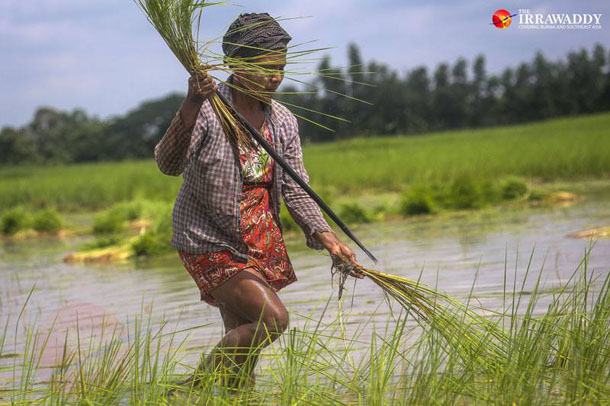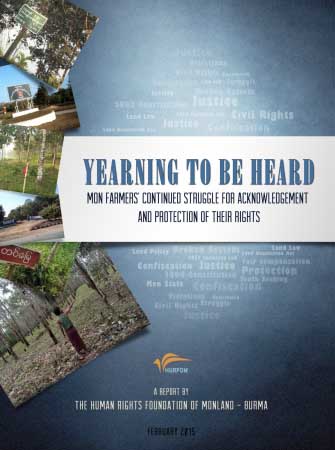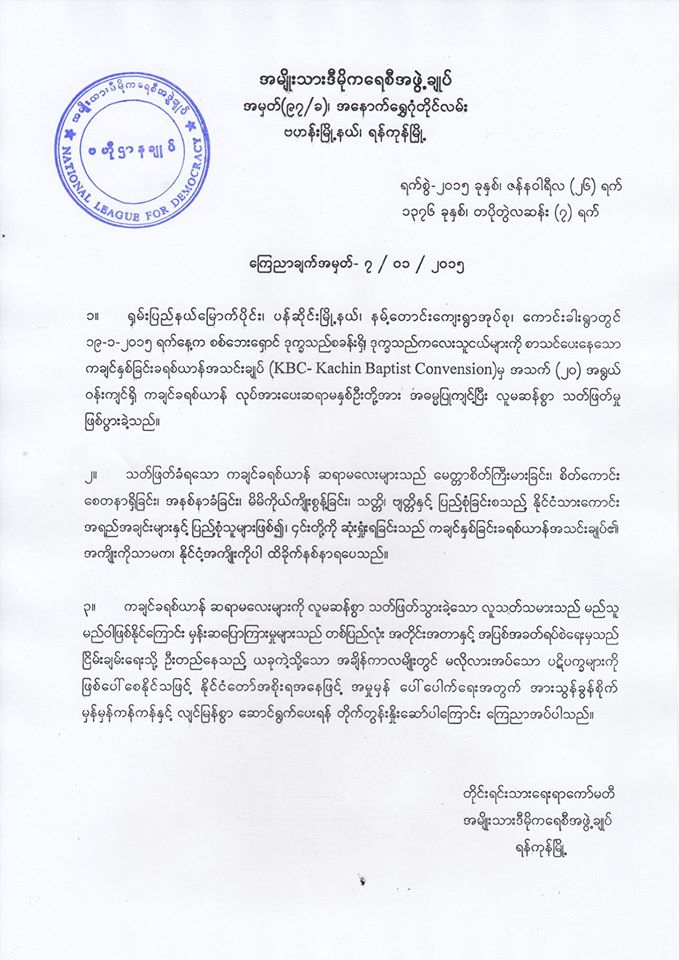Posts Tagged ‘Burma Government’ (94 found)
Land Policies and Laws Must Reflect Rights and Interests of Vulnerable Communities
 Amid the various serious issues currently dominating the headlines about Burma – including the upcoming elections, the escalation in fighting between the Burma Army and ethnic armies, the recent crackdown on workers’ protests, this year’s student marches, and ongoing religious tensions – it is important that people do not lose sight of the land issue. Like other developing South-East Asian countries, Burma is grappling with the sticky and complex problems of land ownership, rights and use. As is often the case, it is the poor and marginalized communities who are most vulnerable to exploitation and human rights abuses, particularly small-scale farmers in Burma’s beleaguered ethnic regions.
Amid the various serious issues currently dominating the headlines about Burma – including the upcoming elections, the escalation in fighting between the Burma Army and ethnic armies, the recent crackdown on workers’ protests, this year’s student marches, and ongoing religious tensions – it is important that people do not lose sight of the land issue. Like other developing South-East Asian countries, Burma is grappling with the sticky and complex problems of land ownership, rights and use. As is often the case, it is the poor and marginalized communities who are most vulnerable to exploitation and human rights abuses, particularly small-scale farmers in Burma’s beleaguered ethnic regions.
This month Human Rights Foundation of Monland-Burma (HURFOM) released a report titled “Yearning to be Heard: Mon Farmers’ Continued Struggle for Acknowledgement and Protection of their Rights” – a follow-up to their 2013 report “Disputed Territory: Mon Farmers’ Fight Against Unjust Land Acquisition and Barriers to Their Progress.” It argues that “continuing barriers to progress lie primarily in the country’s broken land management system, the failures of recent land laws to secure the protection of farmers’ land rights, the failure of government bodies and authorities to perform their responsibilities unbiased from military influence, and the total impunity of the military due to the independent structure of the courts-martial.” A salient example of such impunity, mentioned in the report, is the confiscation of more than 2,000 acres of rubber plantation in Thanbyuzayat Township, Mon State, over the past year. Regrettably, such land rights abuses betray the paltry extent to which the Burma Government is able to influence the Burma Army and rein in its illegal activities […]
• • •Yearning to be Heard: Mon Farmers’ Continued Struggle for Acknowledgement and Protection of their Rights
 Land conflict is the most pressing issue facing Burma today, second only to armed conflict. Though Burma’s emerging democratic government has introduced land policy reform and has established land investigation commissions aimed to resolve land conflicts, civilian land acquisition by the Burmese military continues to take place, particularly in Burma’ minority ethnic areas.
Land conflict is the most pressing issue facing Burma today, second only to armed conflict. Though Burma’s emerging democratic government has introduced land policy reform and has established land investigation commissions aimed to resolve land conflicts, civilian land acquisition by the Burmese military continues to take place, particularly in Burma’ minority ethnic areas.
WORLD REPORT 2015
Burma
The reform process in Burma experienced significant slowdowns and in some cases reversals of basic freedoms and democratic progress in 2014. The government continued to pass laws with significant human rights limitations, failed to address calls for constitutional reform ahead of the 2015 elections, and increased arrests of peaceful critics, including land protesters and journalists […]
• • •A Briefing by Burmese Rohingya Organization UK: International Investigation Urgently Needed into Human Rights Abuses Against the Rohingya
The Rohingya Muslim minority in Burma are the most persecuted ethnic minority in Burma, subject to policies of oppression which are applied almost exclusively to them. Government policies target Rohingya on the basis of their ethnicity and religion. The Rohingya are widely viewed in Burma as illegal immigrants from Bangladesh, despite the fact that Rohingya people have lived in Burma for centuries […]
• • •Burma: Stop Christian cross Removal; Drop Trumped-up Charges
[Chiang Mai, Thailand] The Chin Human Rights Organization (CHRO) today urged the authorities in Burma to overturn an order to dismantle and remove a large Christian cross in the State capital Hakha, and to drop trumped-up charges against Tial Cem, a Chin elder involved in planting the cross. […]
• • •Allegations of Ethnically Motivated Rape and Killing in Myanmar of Grave Concern
I am gravely concerned by the killing and the allegations of the rape of two young female teachers from the Kachin Baptist Convention in a village in Northern Shan State in Myanmar on January 20th. I call on the Government of Myanmar to ensure that an impartial and effective investigation into this killing and alleged rape is conducted in order to ensure justice, reparations for the families and accountability for the perpetrators […]
• • •အမ်ဳိးသား ပညာေရးဥပေဒအား ေက်ာင္းသားမ်ား ကန္႔ကြက္ဆႏၵျပျခင္းအေပၚ ၈၈မ်ဳိးဆက္ (ၿငိမ္းခ်မ္းေရးႏွင့္ ပြင့္လင္း လူ႔အဖြဲ႕အစည္း)၏ သေဘာထားေၾကညာခ်က္
(၁) အမ်ဳိးသား ပညာေရး ဥပေဒသည္ ေက်ာင္းသားမ်ား၏ အနာဂတ္၊ တနည္းအားျဖင့္ လူသား အရင္းအျမစ္ ဆုိင္ရာ ႏုိင္ငံ၏ အနာဂတ္လည္းျဖစ္သည္။ […]
• • •Statement regarding the Need for Creation of National Education Policies and Laws for Realization of Democratic Education System
Action Committee for Democratic Education (ACDE) is comprised of All Burma Federation of Student Unions and University Student Unions. The Committee was established and its members were elected during the nationwide student emergency conference convened on 12-13 November 2014 […]
• • •Statement from the Open Government Partnership Awareness Workshop for Civil Society
Over 193 representatives from 80 Civil Society Organizations (CSOs) and networks in Myanmar participated in the Open Government Partnership (OGP) awareness-raising workshop in Yangon from 19-20 January 2015. The objective of this workshop was to raise awareness and understand the potential benefits, opportunities, weaknesses and concerns regarding Myanmar’s participation in the OGP in the context of the recent transition process and the political developments in Myanmar since 2011 […]
• • •









 All posts
All posts